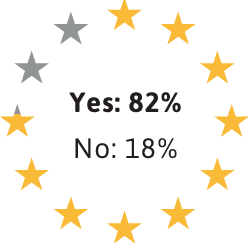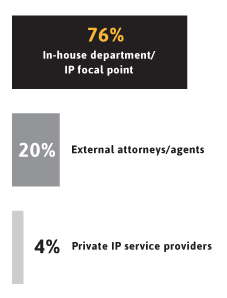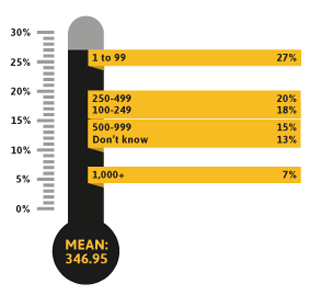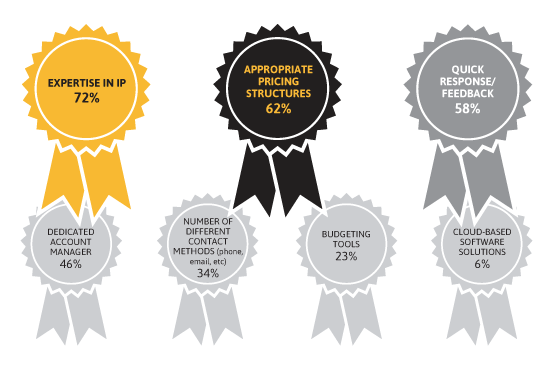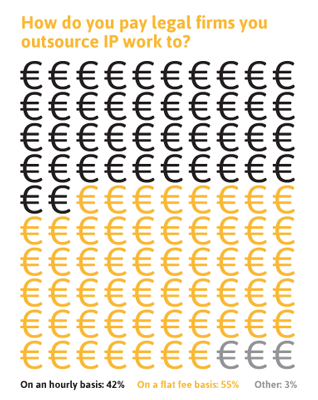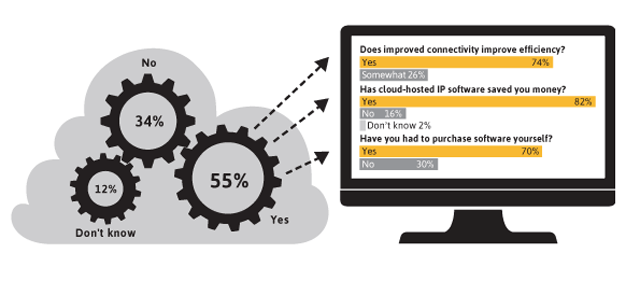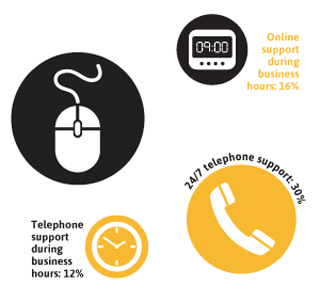Foreword
Whereas intellectual property (IP) law firms hitherto concentrated on legal advice, they are today confronted with a great variety of demands by their clients and a rapidly changing market environment. Thus, traditional approaches are in many cases no longer feasible.
Historically, most companies outsourced all of their IP work to external law firms. Nowadays, a growing number of companies have in-house IP departments coping with some or even a major proportion of the work. While some companies still outsource the high-profile work, such as litigation, freedom to operate and opposition, other companies tend to mainly outsource drafting and prosecution.
In addition, whereas IP firms were in the past dedicated to the whole value-added chain, from filing to the end of the lifetime of the patent, more and more tasks, such as annuities or validation of a European patent, have been taken over by IP service providers not offering any legal advice and often being capital driven.
To offer the whole range of tasks, IP firms, however, have to have available patent attorneys adequate for both the high-profile work and prosecution, and highly qualified paralegals attending to the formal work. Whereas the costs for the high-profile work are generally not an issue, there is a high cost pressure on prosecution and drafting as well as on formal tasks.
To strike a balance between loss of business to service providers and the still desired need for high responsiveness and quality, the pricing structure of IP firms is in a state of flux, with a tendency to increase hourly rates for the legal advice. To put it differently, the pricing structure of German and European IP firms will likely change towards the pricing structure most companies are used to from their US counsels.
Moreover, there is a move towards new ‘products’, such as taking over the IP data management or to offer tools that allow automatic transfer of or access to the necessary data. Due to the great variety of patent management systems on the market and used by companies, there is no easy solution for IP firms to satisfy those needs.
Besides legal advice, law firms are now also concerned with automation of processes. They make use of application programming interfaces in order to enable communication between their database and the various databases and patent management systems of their clients. Web-based communication and internet platforms are also in the picture.
In any case, it is of high importance for the law firm to obtain knowledge about the actual needs and expectations of the companies, apart from the legal advice they traditionally expect.
Andreas Görg,
Partner and European patent attorney,
HOFFMANN EITLE
Best practice: engaging with outside counsel
The Legal 500 Deutschland IP survey sheds light on when it is best to engage external legal advisers on IP issues, and how best to ensure the engagement is run efficiently and effectively
Striking an appropriate balance between building in-house intellectual property teams against outsourcing matters to external law firms is not a straightforward conundrum. In-house professionals are typically immersed in the business, understand its priorities and can quickly engage and collaborate with internal colleagues, such as management and those in research and development (R&D).
External law firms have the advantage of economies of scale, and the ability to develop more specialised expertise and more rounded industry expertise, from advising and representing multiple clients in a number of industries. Often they will have an international network or at least a raft of international connections.
In-house legal teams have grown considerably in recent years, as the global regulatory environment has become more burdensome. They have also expanded as businesses have sought to cut costs by reducing the use of more expensive external lawyers and lowering the inherent inefficiencies of engaging outside counsel.
The crux of the issue is utilisation; there is no point in building in-house teams unless they are equipped to handle a consistent flow of matters. Where niche or a higher level of expertise is required, or where a business simply does not have a sufficient flow of intellectual property (IP) requirements in a particular area to warrant having an internally assigned professional, then it needs to think about effective engagement with an external law firm.
In our survey of over 100 professionals that have responsibility for IP issues, most revealed that they outsourced some of their requirements to external law firms. Moreover, 43% indicated that they outsourced everything. This illustrates the continued significant demand for specialist IP expertise in private practice law firms and the fact that companies simply cannot build a business case for having a fully fledged internal department that can handle all IP matters. In many instances, businesses would effectively need to administer a large and consistent flow of IP applications and related business before they could bring this all in house.
Regulations also play a part in Germany. A senior legal counsel at a major automotive company says that it will always engage outside counsel for a dispute, not just because they have the court experience, but because the business is able to claim their legal costs from the opponent if they win the case; this occurs whether or not the dispute reaches the courts.
Beyond this, the international requirements surrounding effective exploitation of IP will typically ask too much of an in-house department. They will need to engage counsel in various jurisdictions to ensure that their IP assets are properly enforced and protected. Christof Wolpert, vice president global legal innovation at adidas, explains why having a network of specialised external counsel is necessary: ‘There are certain skillsets in our corporate structure that we don’t have in-house. We operate 170 subsidiaries around the globe and we have IP-related litigation in more than 60 different jurisdictions, so we need to work with local counsel.’
‘There are certain skill-sets in our corporate structure that we don’t have in-house. We need to work with local counsel.’
– Christof Wolpert, Adidas
Wolpert believes that it is fruitful to retain much of the core business in-house, because it boosts institutional knowledge, which can be reapplied and refined over time. ‘We do the clearance or freedom to operate in-house because we build experience,’ he explains. ‘We like to build that know-how internally, which enables us to make decisions faster.’
On less critical issues, Wolpert believes that engaging outside legal advisers and the economies of scale that they can provide makes good business sense: ‘I want people in my team working on clearance and strategy, and not on drafting. That doesn’t broaden your skillset as an in-house counsel. We want people to advise on what the business can or can’t do, what are the possibilities, the risks and the threats, and that is how we add value to the process.’
There is a widely held view that in-house teams are better equipped to take more risks, to take more commercially driven decisions even if there is a chance of a negative outcome. In-house counsel recognise that law firms have to minimise their potential liabilities and this necessitates that they pay
more attention to possible downsides, which is not always strategically optimal.
Cross-border expertise is especially important, as illustrated in our survey, which showed that 82% of respondents do business in more than one EU country and 85% do business outside of the EU. The importance of cross-border and international capabilities is brought into sharp focus by the survey, which reveals that 62% of respondents have a dedicated internal resource to manage IP registrations in multiple countries. At the same time, 54% of survey participants outsource this responsibility to external law firms.
Needing a helping hand
When to turn to external legal advisers can pose a problem. For many smaller businesses, they simply do not have the expertise or resources to manage any of their IP matters. For others, they would engage external counsel when there is a cross-border component or if the issue was so complex that it would require specialist or niche expertise. Other businesses prefer to use outside legal expertise for more routine and volume matters, where economies of scale can be beneficial.
Christian Reinders, chief IP counsel at Dräxlmaier Group, the German automotive component supplier, says that he needs to constantly assess capacity and utilisation in his own team, and identify when it simply does not have the expertise, experience or geographic capability to handle a matter: ‘We look at what resources we have internally, whether we can manage that or if the case is so complex that it would make sense to engage outside counsel with specific expertise in that field.’
Carmen de la Hoz Llarandi, head of the industrial property office at Banco Santander, says the bank routinely looks to external legal advisers when matters become ‘complex and require more expertise’. The bank was involved in a long-running trade mark dispute with Sparkassen, the German savings bank, over the use of a particular hue of red in its branding.
‘IP is again an increasing area of focus to successfully tackle the complex challenges caused by increasing global competition and disruptive digitalisation in the 4th industry revolution.’
– Maike Weber, Native Instruments
Reinders believes that as the global economy develops, and innovative technologies become more integral to manufacturing and product design, businesses inevitably have to think carefully about looking outside for particular skills and knowledge that do not exist in-house. ‘If we are stepping into a technology field where we do not have the experience and background, we like to involve outside counsel that can help us better understand that technology. I try to find specialists and patent attorneys with specific expertise in business models and technical standards that are different to our traditional business model,’ he explains.
When it comes to IP strategy, businesses typically feel that this is best served by an internal person and/or team. In this instance, only 20% of survey participants look to external counsel for guidance on IP strategy, though this issue does become more complicated as businesses grow internationally. Reinders says that running the strategy in-house makes absolute sense because he and other team members have easy access to and regular communication with the management board and the R&D department. He admits though that this approach has its limitations: ‘It might be different if we were a multinational company that was ten times the size. If you were so big in size that you had to organise invention harvesting in local branches of the company, it might then make sense to completely outsource the patent work.’
Even for smaller companies, Maike Weber, head of legal at Native Instruments, says that external advisers can contribute a great deal to a business’s strategy: ‘We would always discuss the overall IP strategy with external experts, because they have experience of other companies and understand how other companies of this size operate. Their experience can help us to be better.’
Identifying the right external counsel
Our survey highlights common factors in how businesses choose their legal advisers. Not surprisingly, businesses have a primary emphasis on getting the best IP expertise from their external counsel. Priorities for choosing advisers also include appropriate pricing structures, and quick responses and feedback. Of less importance is a dedicated account manager and of least importance is the availability of budgeting tools and cloud-based software solutions. Our independent interviews suggested these tools and software solutions are becoming increasingly important, but interviewees in particular highlighted the importance of outside counsel understanding how their businesses operated, the technologies and structures that drive them, and the industry that they compete in.
Beyond this, the head of legal international at a Munich-based technology company says that he looks for especially high levels of pragmatism and commercialism in his legal advisers: ‘I definitely require external counsel to be in-house counsel-like and operate in a way that we operate as a legal team. They don’t have to give us the 100% answer on everything if it takes ages to get it done when all we wanted was an educated guess on exposure to a certain issue. If someone is able to give us a 95% accurate answer quickly and tell me that there is still some residual risk that needs to be checked, that clearly helps. I don’t want them to spend hours on a certain issue that I explained at the beginning was not so important.’
Equally, a senior legal counsel for IP matters at a leading Germany-based clothing company says that legal advisers must be cognizant of a company’s appetite for litigation and whether the potential commercial advantages will warrant the time, resource and monetary cost of pursuing a dispute. ‘The most important characteristic is a pragmatic approach,’ she explains. ‘We don’t want to be forced into claims that don’t make sense or where we have no chance to defend them. We are cost-sensitive and it needs to be the best solution from a monetary point of view.’
Paying for legal services
For all the talk of alternative fee arrangements over the last decade, the vast majority of law firms around the world are still wedded to the billable hour. It does provide transparency and convenience for both firm and client, though it is not necessarily the most efficient means of charging for legal services. There is of course the administrative time that goes into tracking hourly costs; there is then the reluctance among clients to pick up the phone when a query arises in case the clock starts ticking. The billable hour is not always conducive to regular contact and effective collaboration, and that is why clients continue to look for alternative arrangements. Our survey indicates that businesses have a preference for fixed fees, even if there is some flexibility around them. Fifty-five percent of respondents reveal that they pay external law firms on a flat-fee basis. An in-house counsel from a German firm explains the reasons why the billable hour is falling out of favour and where he feels firms can be more creative around fees: ‘I do not care for the hourly rate. It is something that is transparent and makes a law firm comparable to the next firm, but I am more concerned about the efficiency of the lawyer and how they handle the matter. I’m interested in smart models; it would be interesting to have a monthly base rate that covers the ten-to-15-minute calls that we have every now and then, rather than always starting the clock on an hourly basis.’
Reinders has similar sentiments, though he recognises that clients should not impose too much of a financial burden on the legal advisers as this can be counterproductive in fostering fruitful relationships and inspiring quality service delivery: ‘A fixed fee definitely helps as it is more predictable for our controllers and the people responsible for our budget. I really like fixed fees, but because I have worked as an outside counsel I recognise that it can cause constraints. I’m very happy to agree fixed fees, but recognise that we should not put all the cost pressure on the IP firm.’
Creative approaches to billing should always be at the forefront of a law firm’s considerations, especially as clients have faced increasing pressure to cut costs and stick to budgets. Robert Fichter, chair of the board of directors at Dennemeyer & Associates, says that one way of increasing predictability is to fix currency conversion rates, which he recognises can be a particular challenge given today’s uncertain geopolitical and economic climate: ‘As managing IP rights all over the world involves currency issues, it is a common desire to fix conversion rates for a certain period of time.’
Connecting through technology
While much interaction with outside legal advisers continues to be via phone and email, there is a growing demand for technology to facilitate more integrated relationships and collaboration. Our individual interviews suggest that a high degree of communication remains through traditional methods, but our survey indicates that the landscape is changing. Fifty-five percent of respondents say their legal advisers provide a cloud-hosted IP software solution to help clients track progress and ensure that matters move forward more efficiently.
‘I try to find specialists and patent attorneys with expertise in business models and technical standards that are different to our traditional business model.’
– Christian Reinders, Dräxlmaier
Seventy-four percent of survey participants indicate that cloud-hosted software helps to improve connectivity and promotes efficiency in budgeting, exchanging data and other work. Fichter says: ‘Communicating by email is the most convenient way to implement, but as we all know, it is also a very cumbersome and time-consuming method.’ He believes that shared portals ‘allow easy sharing of documents among all involved parties’ and ‘the direct upload of documents and related bibliographic information’. Moreover, he indicates that an IP management system ‘directly increases efficiency on both the outsourcing party’s and outsourcing partner’s ends’ and believes that the transfer of emails can be radically reduced, especially when follow-ups and requests for confirmation of receipt of emails can be eliminated.
For businesses, this can be hugely important, with 82% of respondents suggesting that cloud-hosted solutions provided by their legal advisers had saved them money, including freeing them from having to purchase the tools themselves. Speaking to The Legal 500 Deutschland, a senior in-house lawyer says that cloud hosted software can enable a business and its external legal adviser to work concurrently on a shared document, to monitor progress from both sides and be able to access key files at all times: ‘That would make life much easier as every single request can be time consuming, where you ask for an update on a particular template, and the partner goes to the associate who has to invest time in providing a response and the partner then forwards the response to me. The administrative time is very high. I would like to use cloud tools or other tools that help me understand where a matter stands, what the external adviser needs, and what is pending from them and pending from us.’
Despite the increasing prevalence of these tools as part of a law firm’s offering to clients, 70% of survey participants indicated they had acquired their own software systems, in part because they still required their own internal tools and often work with a range of external advisers. Popular systems used by respondents include those provided by WiNPAT, DIAMS iQ, Computer Packages, PatOrg and Ipendo.
One senior in-house lawyer at a German automotive industry company says that he does not have high expectations of his external counsel to provide cloud-hosted software programs, because it would unlikely be compatible with the business’s own e-filing system.
The relationship between a business and a law firm is becoming increasingly complicated due to the greater expectations from clients and the technology solutions that are coming onto the market. Businesses continue to grapple with the choice between building sizeable in-house IP teams and the recognition that external law firms can provide a broader suite of expertise, resources and economies of scale. To make the relationship between client and firm more fertile, external legal advisers will have to work harder to understand their clients’ business priorities, to provide more flexible and creative fee structures, and to make their day-to-day communications and collaborations tighter and more effective.
Chris Crowe
Do you currently outsource any of your IP requirements to a law firm?
Does your company do business in more than one EU country?
Does your company do business outside of the EU?
How do you cope with IP registrations in different countries?
Is the IP strategy part of your company’s corporate strategic planning?
Who is in charge of IP strategy?
At what level of IP protection applications filed per year would your company start to use in-house lawyers, rather than a legal firm’s expertise?
What are your expectations of a firm that you are outsourcing IP work to?
How do you pay legal firms you outsource IP work to?
Does your law firm provide a cloud-hosted IP software solution?
Does your company use any of the following IP software packages?
What level of support do you expect from IP software providers?
Data summary and overview
The vast majority of respondents (83%) outsource at least some of their IP requirements to a law firm. Expertise in IP is of course an expectation, as is appropriate pricing structures and responsive feedback. Over half pay a flat fee, rather than an hourly rate.
Over half are provided with a cloud hosted IP software solution by their law firm. Benefits can include increased efficiency and cost savings, although they may still have to buy IP software themselves.
Over 80% of respondents said that their companies do business in more than one EU company or outside of the EU. Dedicated in-house roles are the most common way of coping with IP requirements in different countries.
Many companies use their IP to their advantage, whether it is to enable co-operation, for marketing purposes, making it an attractive target for M&A, to help obtain funding or quantifying the value of the company itself.
IP incentivisation mainly takes the form of fostering an innovative culture and environment, although half offer financial incentives. Companies provide induction training and other training sessions to ensure basic IP knowledge, while some provide workshops for inspiration.






